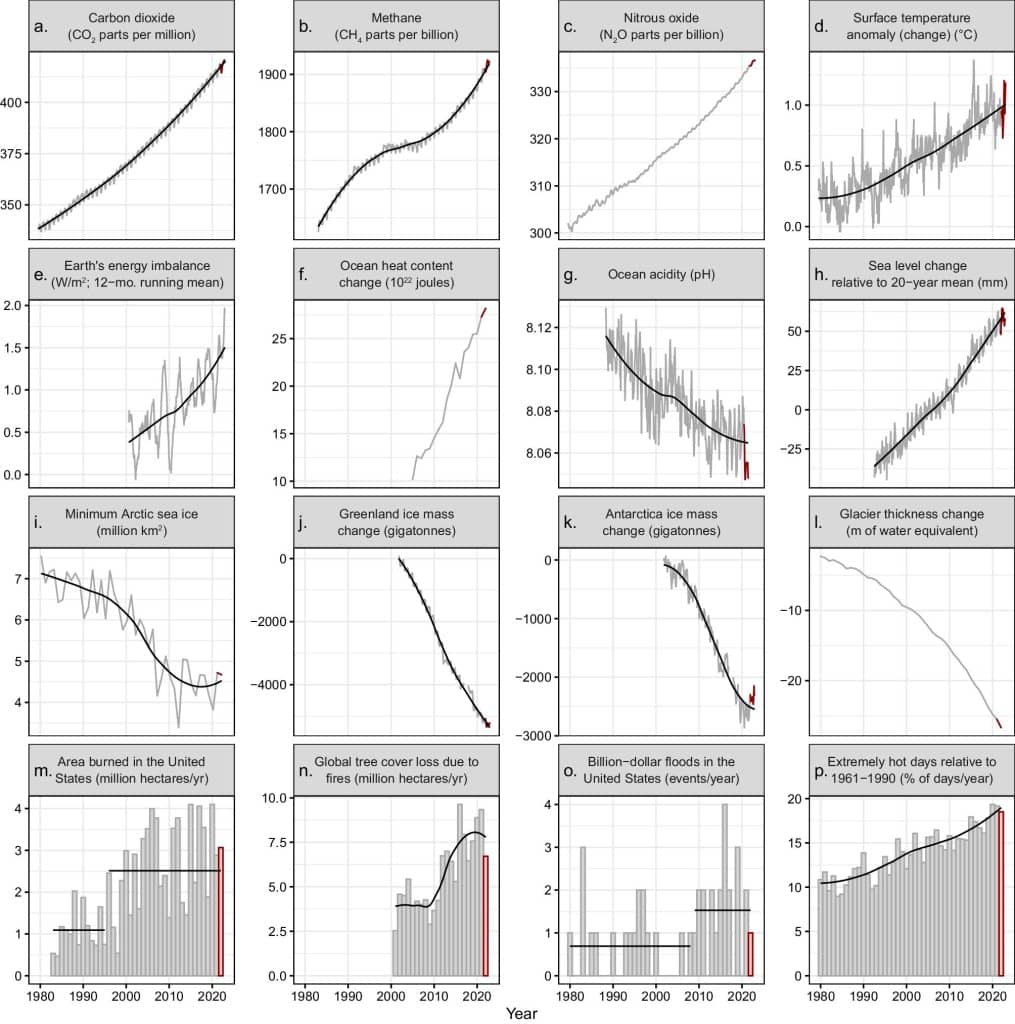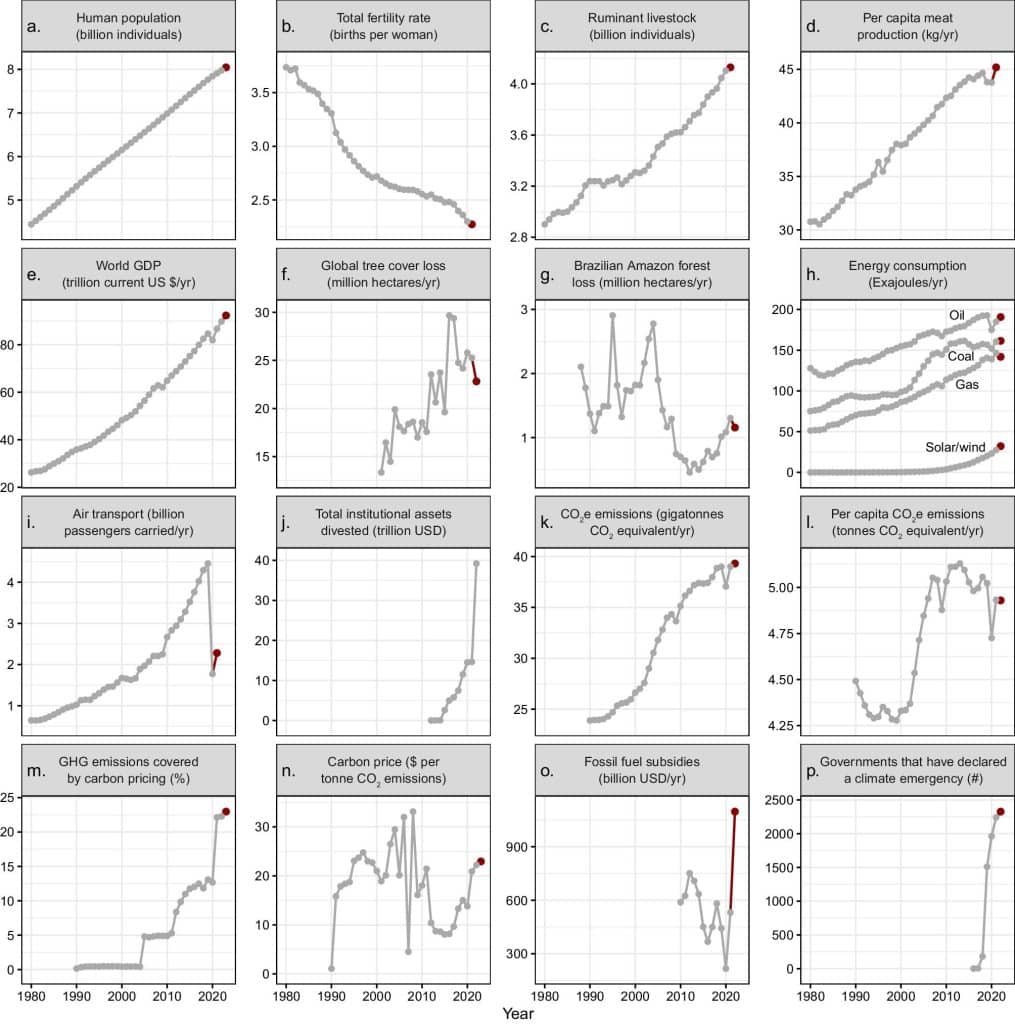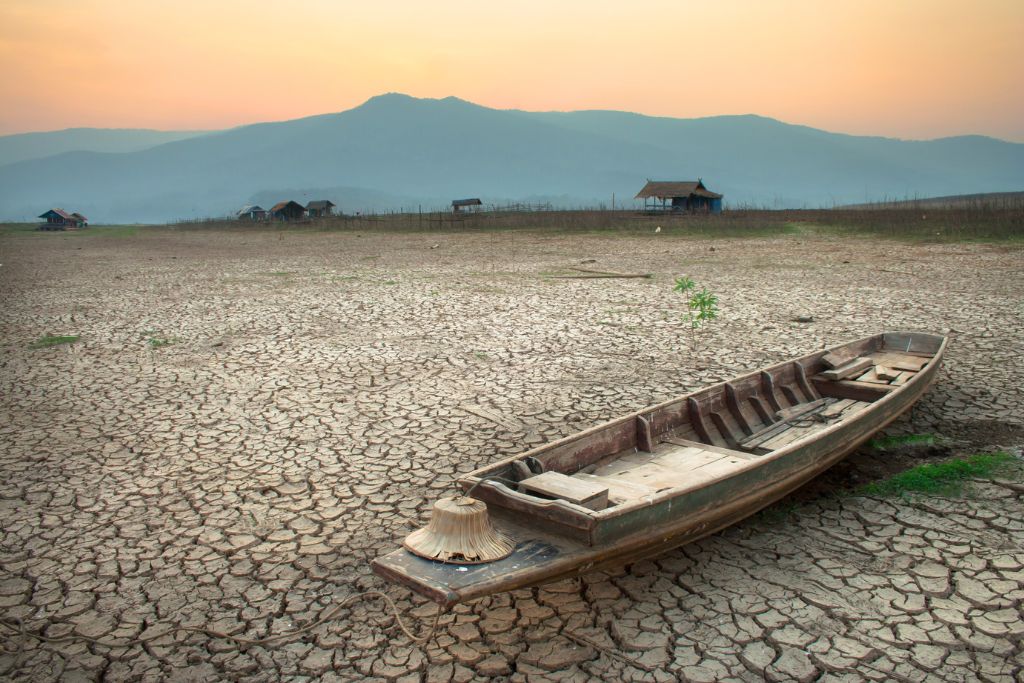Two distinct analyses published this week offer a grim outlook for the future of the planet as the climate crisis intensifies and spirals out of control. The climate reports come as world leaders prepare to convene at the UN COP28 summit in late November.
—
Time is up. The world has officially entered uncharted territory as highly anticipated events of unprecedented magnitude directly linked to the rapidly intensifying climate crisis are finally manifesting around the world, new climate reports have warned.
Published in the journal Bioscience on Tuesday and endorsed by more than 15,000 scientists from around the world, the first study looked at recent extreme weather events and the climate records broken so far in 2023, which represent “deeply concerning patterns of climate-related disasters.” It also monitored governments’ progress in terms of mitigation and adaptation, concluding that there has been “minimal progress by humanity in combating climate change.”
Every corner of our planet has dealt with the consequences of global warming in some shape or form in recent years. Summer 2023, the hottest the planet has ever seen, was characterised by extreme heatwaves and other natural disasters such as flooding, hurricanes, and wildfires. July saw the highest monthly surface temperature ever recorded and became the hottest month in history. Extreme temperatures persisted in August, when the Mediterranean Sea – which is warming 20% faster than the global average – surface hit record highs of 28.7C.
Global average temperatures kept rising dramatically in September. They were 0.93C above the 1991-2020 average for September and a staggering 0.5C above the previous warmest September recorded in 2020, putting 2023 on track to be the hottest year in history.
Scientists behind the study looked at the planet’s 35 “vital signs”, which span from greenhouse gas (GHG), methane, and nitrous oxide emissions and sea level rise to human and livestock population numbers, and glacial melting. They concluded that 20 of them are already at record extremes following the “continued pursuit of business as usual,” which has led to “unprecedented pressure on the Earth system.”


In terms of energy, the study said that carbon emissions have soared relentlessly since the world entered its post-pandemic recovery phase, with fossil fuels still dominating the global energy mix. Atmospheric CO2 reached record levels this summer, peaking at 424 parts per million (ppm) in May, more than double what they were before the onset of the Industrial Revolution in the 19th century. A study published in June in the scientific journal Nature even suggested that as much as 90% of the world’s top-35 polluting countries, which together accounted for 82% of global greenhouse gas emissions in 2019, are “unlikely” to achieve their net-zero targets.
Forests such as the Amazon – the largest and most threatened rainforest in the world – have seen some progress, especially following the election of a new president in Brazil. Nevertheless, studies show that humanity is not on track to reverse deforestation despite pledges made by more than 140 countries at COP26 to end it by the end of the current decade.
“The statistical trends show deeply alarming patterns of climate-related variables and disasters,” William Ripple, a professor of ecology at Oregon State University and the lead author of the report, said in a statement. “Life on our planet is clearly under siege.”
The study also makes suggestions on how the world should react to what what it describes as a “systemic, existential threat” to life on Earth. In particular, researchers called for a rapid transition to a global economy that prioritises human wellbeing as opposed to capitalism-driven overconsumption and resource exploitation, arguing that policies should focus on promoting a circular economy and prioritising sustainability, climate justice, and a fair distribution of the planet’s resources to protect, first and foremost, climate-vulnerable communities.
“It is a moral duty of scientists and our institutions to alert humanity of any potential existential threat and to show leadership in taking action,” said Ripple.
The study preceded the release of the UN 2023 Interconnected Disaster Risks report, which only reinforced the point made by Ripple and colleagues. The UN’s research arm, the University’s Institute for Environment and Human Security (UNU-EHS), analysed six interconnected risk tipping points: accelerating extinctions, groundwater depletion, mountain glacier melting, space debris, unbearable heat, and uninsurable future.
It concluded that humanity is “moving close to the brink of multiple risk tipping points, critical thresholds that, when exceeded, can lead to a significant change in the state of the system, often with an understanding that the change is irreversible.
“As we indiscriminately extract our water resources, damage nature, and pollute both Earth and space, we are moving dangerously close to the brink of multiple risk tipping points that could destroy the very systems that our life depends on,” said Dr Zita Sebesvari, at UNU’s Institute for Environment and Human Security. “We are changing the entire risk landscape and losing our tools to manage risk.”
You might also like: ‘Immediate’ Methane Emissions Cuts Would Prevent Almost a Million Premature Deaths By Mid-Century, IEA Says


















